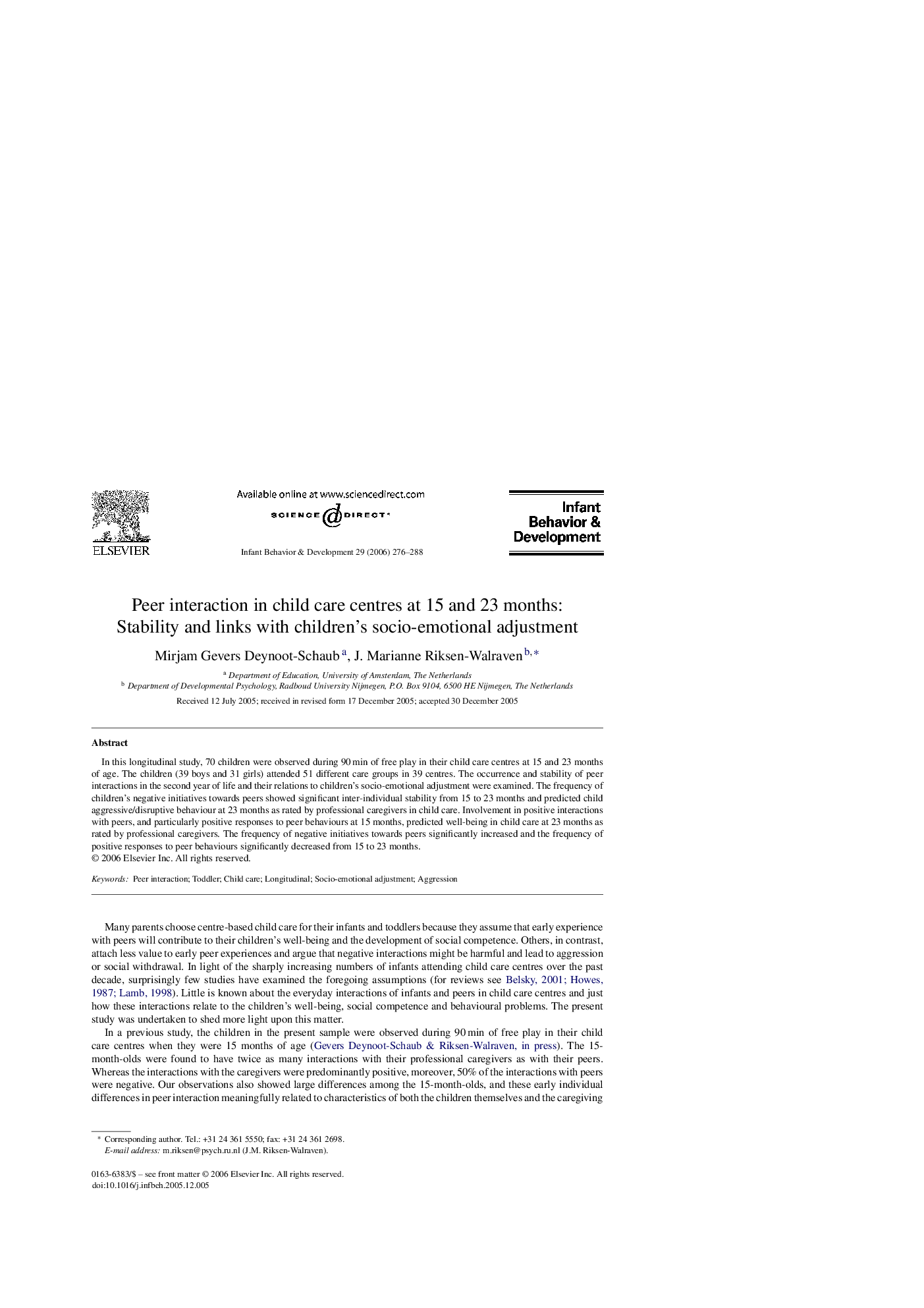| Article ID | Journal | Published Year | Pages | File Type |
|---|---|---|---|---|
| 917709 | Infant Behavior and Development | 2006 | 13 Pages |
In this longitudinal study, 70 children were observed during 90 min of free play in their child care centres at 15 and 23 months of age. The children (39 boys and 31 girls) attended 51 different care groups in 39 centres. The occurrence and stability of peer interactions in the second year of life and their relations to children's socio-emotional adjustment were examined. The frequency of children's negative initiatives towards peers showed significant inter-individual stability from 15 to 23 months and predicted child aggressive/disruptive behaviour at 23 months as rated by professional caregivers in child care. Involvement in positive interactions with peers, and particularly positive responses to peer behaviours at 15 months, predicted well-being in child care at 23 months as rated by professional caregivers. The frequency of negative initiatives towards peers significantly increased and the frequency of positive responses to peer behaviours significantly decreased from 15 to 23 months.
